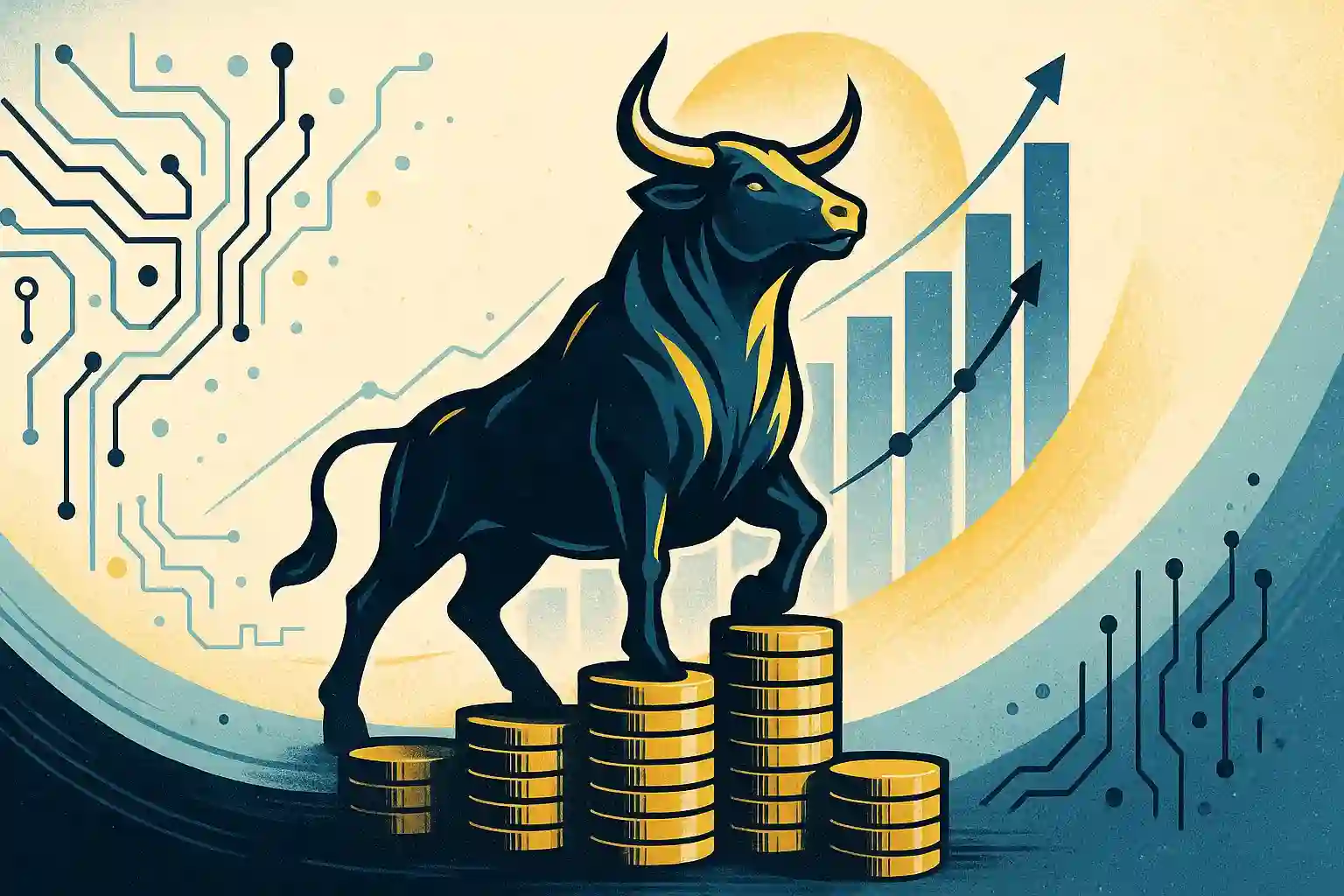
n April 2025, Bill Ackman reached a new financial summit. Far from just another headline for Wall Street, Forbes placed his net worth at approximately $9.2 billion—up from $4.3 billion just a year earlier. This dramatic leap stems largely from the robust performance of Pershing Square Capital Management and its main investment arm, Pershing Square Holdings. No less important, these events mirror broader movements influencing the stock market in a year shaped by strong equity rallies, ongoing global growth, and significant policy developments.
Pershing Square Holdings Outpaces Both Peers and the S&P 500
Pershing Square Holdings—publicly traded in London and OTC as PSHZF—produced a 25.3% return so far in 2025, vastly outstripping the S&P 500’s 11.7% over a similar stretch (Barron’s). For comparison, hedge fund data provider Preqin observed average global hedge fund returns of just 8.5% in 2025. This outsized performance has drawn investor attention to Pershing Square’s strategy: its net asset value now stands near $16 billion with a market capitalization around $11 billion.
The global economic context may play a subtle supporting role. According to the International Monetary Fund (IMF), global GDP is forecast to expand by 3.1% in 2025, with the U.S. contributing a 1.7% rate. Such macro trends continue to favor equities and the hedge funds that navigate them adeptly.
Mortgage Agency Holdings: Fannie Mae and Freddie Mac Rally
One of the keystones of Pershing Square’s ascent has been its persistent position in Fannie Mae and Freddie Mac. In early 2025, shares of Fannie Mae skyrocketed by roughly 350%, closing at $14.64 late in April, while Freddie Mac multiplied approximately fourfold, climbing to $13.50.
These surges are linked directly to evolving expectations around government policy—specifically, the Trump administration’s anticipated plan for releasing Fannie Mae and Freddie Mac from federal conservatorship, a scenario Ackman has consistently supported. As reported by Barron’s, Pershing Square’s estimated combined stake in these mortgage agencies totals 180 million shares, valued close to $2.5 billion. Fitch Ratings also notes that any concrete move toward privatization could continue fueling rapid growth for these stocks into the second half of the year.
The resonance of policy with stock prices is hardly a new theme, yet rarely does the connection manifest as vividly as it has here.
Focused Investment Philosophy in Volatile Markets
Ackman’s approach with Pershing Square has always favored focus over proliferation. The fund generally holds a compact portfolio—usually around six principal equities. In addition to the mortgage agencies, its main holdings comprise established firms such as Uber Technologies, Alphabet, Brookfield Asset Management, and Restaurant Brands International.
After several high-profile short-selling campaigns earlier in his career, Ackman has since leaned toward holding “durable growth companies.” This shift, he argues, prioritizes stability in an unpredictable market environment. Today, Pershing Square manages about $20 billion in assets. Its concentrated bets on perceived undervalued companies are now frequently cited by investment analysts as a template for long-term value growth, particularly given that average global hedge fund returns have lagged far behind Pershing’s pace (Preqin).
A note of context: the technology sector, forming a core part of Pershing Square’s portfolio, was projected by Bloomberg Intelligence to enjoy a 6% uplift in global tech spending this year, driven in no small part by artificial intelligence advances. Holdings like Alphabet and Uber may thus benefit from these currents.
Bill Ackman Beyond Wall Street: Voice, Controversy, and Political Moves
Ackman’s imprint is not limited to balance sheets or trading floors. With over two million followers on X (formerly Twitter), he is one of the financial world’s most vocal online personalities. The 2024 news cycle found him at the heart of campus debates, as he called for the resignation of Harvard University’s president after serious allegations of plagiarism and antisemitism.
In a marked change from previous political activity, Ackman publicly endorsed Donald Trump in the 2024 election, having supported Democratic candidates for much of his public life. According to the Pew Research Center, more than half of investors see political events as exerting major influence on their strategies this year. It seems that for Ackman, financial and political arenas increasingly intertwine.
Historical Milestones and Learning from Ackman’s Moves
Many investors remember Ackman’s prescience in 2020, when his early bet against the bond market netted Pershing Square $2.6 billion just as the COVID pandemic triggered global selloffs. As the dust settled, Ackman reinvested proceeds into long-term positions like Chipotle Mexican Grill and Canadian Pacific Railway, companies known for their steady growth even through challenging cycles.
For followers of market trends, Ackman’s career underscores the value of disciplined research, holding to conviction, and adapting to shifts in political and regulatory climates. Investors contemplating their paths in 2025 might recall: stock market cycles often reward the patient yet bold, especially when fundamentals are married with attention to macro events.
How Investors Interpret the Pershing Square Playbook
The past year offers several observations for those active in the stock market. Ackman’s willingness to stake large sums on a handful of deeply researched ideas, set against a background of political transformation and global economic growth, has generated outsized returns compared to peers. The art, it seems, lies not in wild diversification, but in well-chosen focus.
For those tracking trends in finance and real estate, the evolving regulatory environment matters greatly. The possible release of Fannie Mae and Freddie Mac from conservatorship exemplifies how external developments can trigger major valuation swings in targeted sectors. Meanwhile, the surge in technology spending projected for 2025 presents additional avenues for investment, as seen by Ackman’s interest in firms like Alphabet and Uber.
At heart, Ackman’s approach fuses deep analysis with an eye on macro currents—a reminder to investors that adaptation and conviction often go hand in hand.
Summary Table: Main Pershing Square Holdings and Stock Market Performance (2025)
| Holding | 2025 Year-to-Date Return | Estimated Market Value | Commentary |
|---|---|---|---|
| Pershing Square Holdings (PSHZF) | +25.3% | ~$11 Billion | Far ahead of S&P 500, average hedge fund returns |
| Fannie Mae | +350% | ~$1.7 Billion (115 million shares) | Pinned to expectations of conservatorship exit |
| Freddie Mac | +300% | ~$800 Million | Stock closely tracks Fannie Mae’s rally |
| Uber Technologies | N/A | Significant portfolio stake | Growth aligned with global tech sector spending |
| Alphabet | N/A | Core tech holding | Stable exposure to industry leader |
Outlook: Bill Ackman’s Enduring Market Presence
Bill Ackman’s doubled net worth in 2025 is not solely a tale of quick speculation. Instead, it reflects a long-term commitment to concentration, thorough research, and placing trust in carefully selected companies and macro conditions. As global growth forecasts edge ahead and policy debates continue to shape markets, those aiming to interpret the next chapter in finance would do well to observe Pershing Square’s path—a rare combination of calculated risk and discipline, set squarely against the year’s economic and political backdrop.
As the market digests new policy directions and shifting investor moods, Ackman’s activity remains a barometer for possible trends—sometimes a weather vane, sometimes a lightning rod, but always instructive for those who watch closely.

















